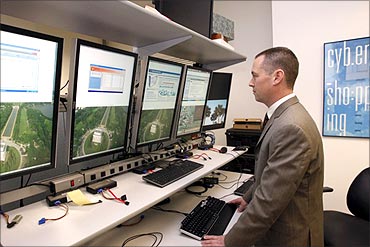 | « Back to article | Print this article |
Corporate espionage is now digital spying
Both the instances are related to corporate espionage.
High-end cyber criminals have now shifted from targeting credit cards and other personal data to intellectual capital of large corporations and even countries.
Cyber criminals target trade secrets and product planning documents that they later sell to rival firms.
According to private detective agency Sleuths India, corporate espionage is becoming hi-tech. We have seen a rise in such cases.
Click NEXT to read on
Corporate espionage is now digital spying
Both the instances are related to corporate espionage.
High-end cyber criminals have now shifted from targeting credit cards and other personal data to intellectual capital of large corporations and even countries.
Cyber criminals target trade secrets and product planning documents that they later sell to rival firms.
According to private detective agency Sleuths India, corporate espionage is becoming hi-tech. "We have seen a rise in such cases.
Click NEXT to read on
Corporate espionage is now digital spying
According to a study by McAfee and Science Applications International Corporation, there has been an increase in such cases.
Companies are spending up to $1 million a week to secure sensitive information. The study says that cyber criminals have made the shift from stealing personal information, to targeting intellectual capital of some of the world's top organisations.
"Cyber criminals know selling a corporations' proprietary information and trade secrets is more profitable, which have little to no protection making intellectual capital their new currency of choice," it added.
Click NEXT to read on
Corporate espionage is now digital spying
"By persistent attack on the company, cyber criminals get access to intellectual property of the firms. Such data is potentially used by competition," said Shantanu Ghosh, Vice-President, India Product Operations, Symantec.
He added that other than losing important data, the attacks have financial implications too.
According to a study by Symantec's State of Enterprise Security Survey 2010, the average revenue lost by Indian enterprises due to cyber attacks was over Rs. 58 lakh.
Click NEXT to read on
Corporate espionage is now digital spying
As per statistics, 69.6 per cent professionals have stolen some form of corporate data from their employer when leaving a job; 32.6 per cent employees leaving a job took sales proposals and presentations with them.
And almost 60.4 per cent admitted to taking information such as customer databases and contact information.
According to a cyber security expert, in India, most of the cases go unreported as unlike in US, reporting cyber thefts is not mandatory here.




